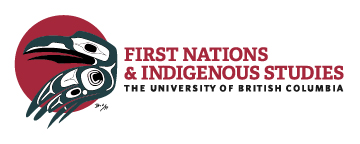The videos feature key clips from interviews performed with Indigenous and non-Indigenous faculty throughout 2019 and 2020. By dividing the videos into two, twenty-minute segments, we hope that whether the films are screened in classrooms, workshops, or department meetings, they will be followed by a group discussion around the important themes that are raised.
Part One explores faculty perspectives on differing student knowledge levels in the classroom, the impacts of contemporary events and initiatives on increasing awareness of Indigenous topics, the importance of community building to create positive classroom climates, and the collective nature of institutional change. We recommend screening this film among university faculty and staff within department meetings and upper administration in order to spark powerful conversations across university campuses.
In Part Two, faculty discuss the affective nature of teaching and learning about Indigenous topics while outlining helpful strategies to integrate Indigenous curriculum into their classrooms. This film emphasizes the critical role of engaging with positionality, holding space for emotionality, and utilizing a relational framework of engagement within and beyond the classroom. This video can be screened on the first day of class to facilitate conversation between students and their professor around protocols for reciprocal engagement in creating an anti-oppressive learning environment.
The key themes arose during the storyboarding process when compiling the series of faculty interviews. The following themes discussed throughout this project are: positionality, Indigenous student support, tending to the affective side of the classroom, knowledge gaps and Indigenous tokenization, classroom interventions, and broad accountability in continuing this work. Each theme is contextualized by discussion topics from the original What I Learned in Class Today: Aboriginal Issues in the Classroom project in order to provide a retrospective glance at the shifting conversations around classroom climate.
Faculty Perspectives: Part One
Chapter One: What are faculty perspectives on the level of support for Indigenous students and students in courses focused on Indigenous topics? Featuring Dr. Sarah Hunt and Dr. Mark Turin [0:17-3:36]
Chapter Two: What are some changes seen in students’ prior knowledge when encountering the classroom? Featuring Dr. Dory Nason, Dr. David Gaertner, and Dr. Paige Raibmon [3:37-9:26]
Chapter Three: How has the institution improved with Indigenous engagement in teaching and learning? Featuring Dr. Mark Turin, Dr. Paige Raibmon, Patricia Barkaskas, Dr. David Gaertner, Dr. Coll Thrush, and Dr. Aftab Erfan [9:27-21:16]
Faculty Perspectives: Part Two
Chapter Four: What is the work faculty are doing before bringing Indigenous curriculum into their courses? Featuring Dr. Sarah Hunt, Dr. Mark Turin, Dr. Coll Thrush, and Dr. Linc Kesler, [0:16-11:10]
Chapter Five: What are instructors’ anxieties or concerns on integrating Indigenous content into the classroom? Any recommendations based on these experiences? Featuring Dr. Linc Kesler, Dr. Aftab Erfan, and Dr. Dory Nason [11:11-15:35]
Chapter Six: Can you share any moments of deeper learning in the classroom? Featuring Dr. David Gaertner, and Dr. Sarah Hunt [15:36-21:26]

